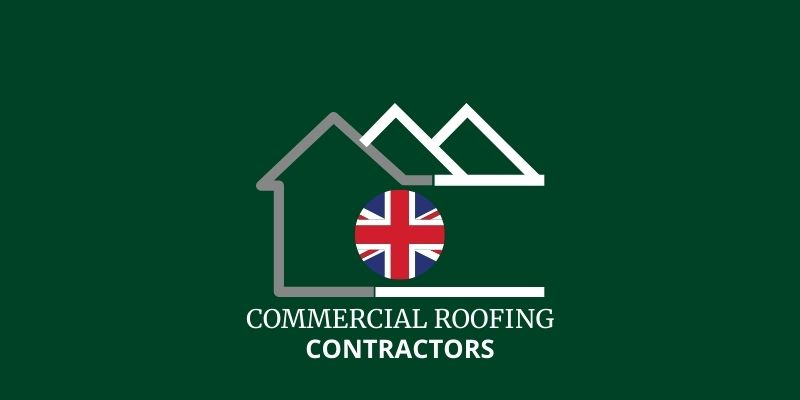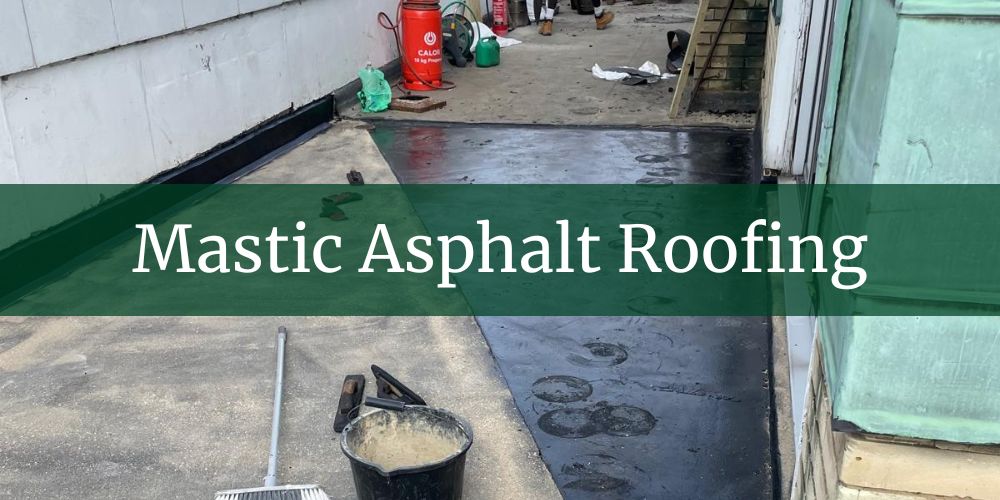Mastic asphalt roofing provides long-lasting protection for heavy-duty roofs in the United Kingdom, known for its durability and resistance to weather extremes. Its seamless application helps it withstand heavy rainfall, temperature fluctuations, and even foot traffic, making it ideal for commercial buildings and complex roof shapes. Mastic asphalt is particularly beneficial in the UK's variable climate, as its waterproofing capabilities guard against the common issue of leaks during wet seasons. Additionally, its fire-retardant properties add an extra layer of security for commercial properties requiring stringent safety standards, ensuring peace of mind for business owners and facility managers. Commercial Roofing Contractors provide mastic asphalt roofing services to all types of buildings across the United Kingdom.
For commercial building owners and facility managers in the United Kingdom, understanding the strengths of mastic asphalt roofing can lead to significant savings on repairs and maintenance. In this blog, we’ll delve deeper into the advantages of mastic asphalt, explore its applications, and offer insights on leveraging this robust material for operational efficiency and longevity in the UK’s diverse environment.
What Makes Mastic Asphalt Roofing Ideal for Commercial Buildings?
Mastic asphalt roofing is preferred for commercial buildings due to its durability and weather resistance. Additionally, it offers excellent waterproofing capabilities, is highly fire-resistant, and requires minimal maintenance. These features make it a cost-effective and reliable choice for large-scale commercial applications.
The following list highlights the key reasons why mastic asphalt roofing is ideal for commercial buildings:
- Durability: Withstands heavy foot traffic and harsh environmental conditions.
- Waterproofing: Provides exceptional protection against leaks and water damage.
- Fire Resistance: Offers high resistance to fire, enhancing safety standards.
- Low Maintenance: Requires minimal upkeep, reducing long-term costs.
- Cost-Effectiveness: Offers a long lifecycle, reducing overall roofing expenses.
1. Durability: Withstands heavy foot traffic and harsh environmental conditions.
Durability refers to the ability to endure wear, pressure, or damage over time. For commercial buildings, a durable roofing material like mastic asphalt can withstand frequent use by maintenance personnel and equipment. It also effectively resists damage from weather conditions, such as heavy rain and temperature fluctuations. This robust nature ensures that mastic asphalt roofing remains intact and functional for an extended period, reducing the need for replacements and repairs.
2. Waterproofing: Provides exceptional protection against leaks and water damage.
Waterproofing is the process of making a structure resistant to the ingress of water. Mastic asphalt naturally creates a seamless surface that prevents water penetration, crucial for maintaining the structural integrity of commercial buildings. Its waterproof characteristics prevent issues associated with leaks, such as mould growth and internal structural damage. This high level of protection ensures that commercial buildings remain safe and operations are not disrupted by water-related issues.
3. Fire Resistance: Offers high resistance to fire, enhancing safety standards.
Fire resistance is the ability of a material to withstand fire and prevent its spread. Mastic asphalt has a high fire rating, providing crucial protection for commercial properties by inhibiting the spread of flames. This characteristic helps in meeting stringent fire safety regulations and reducing potential damage from fire hazards. Its resistance not only protects the building but also provides safety to occupants, ensuring compliance with safety standards.
4. Low Maintenance: Requires minimal upkeep, reducing long-term costs.
Low maintenance means requiring little time or effort to keep something in good condition. Mastic asphalt roofing demands minimal maintenance due to its resistance to environmental factors and general wear. This quality offers a significant advantage in reducing maintenance costs and resource allocation over the lifecycle of the roof. Building owners benefit from lower operational costs and minimal disruption to building operations, thereby enhancing the cost-effectiveness of the roofing solution.
5. Cost-Effectiveness: Offers a long lifecycle, reducing overall roofing expenses.
Cost-effectiveness refers to providing the best possible outcomes for the least amount of money. The long lifespan of mastic asphalt roofing means that it offers significant savings on replacement and maintenance costs over time. Its initial investment is offset by the reduced need for repairs and longevity, ensuring budget-friendly roofing management. This financial benefit makes it an appealing choice for commercial building owners looking for a sustainable and economically sound roofing solution.
Have a question about an upcoming project?
How Does Mastic Asphalt Provide Long-Lasting Protection?
Mastic asphalt offers durability, water resistance, and negligible maintenance needs, making it ideal for long-term roofing solutions. Its seamless application prevents water ingress, and it withstands weather variations and physical impacts. This makes it a preferred roofing material for those seeking longevity and resilience in roofing.
Here's how mastic asphalt provides long-lasting protection:
- Waterproof Barrier: Seamless application ensures complete protection against water ingress.
- Temperature Stability: Remains unaffected by extreme temperature fluctuations.
- Load Bearing Strength: Supports heavy weights, reducing damage risk.
- UV Radiation Resistance: Protects against sun damage, slowing material degradation.
- Low Maintenance: Requires minimal upkeep, reducing long-term costs.
1. Waterproof Barrier: Seamless application ensures complete protection against water ingress.
Mastic asphalt acts as a robust waterproof barrier when applied seamlessly. This continuous application method ensures that there are no joints or seams for water to seep through, thus providing comprehensive protection against water ingress. In areas with heavy rainfall, this feature is crucial for preventing leaks and maintaining the integrity of the roofing structure over time.
2. Temperature Stability: Remains unaffected by extreme temperature fluctuations.
Mastic asphalt is designed to remain stable despite varied temperature changes. It can handle both high and low temperatures without cracking or deteriorating, preserving its protective properties regardless of the weather. This temperature resilience ensures the asphalt maintains its effectiveness over years of exposure to different climates.
3. Load Bearing Strength: Supports heavy weights, reducing damage risk.
The load-bearing capacity of mastic asphalt helps it support substantial weights. It can sustain the weight of foot traffic and equipment without sustaining damage, making it ideal for roofs that may need to bear additional loads. This characteristic not only preserves the structural integrity of the roof but also extends its lifespan.
4. UV Radiation Resistance: Protects against sun damage, slowing material degradation.
Mastic asphalt is resistant to UV radiation, a prevalent cause of material degradation. This protection prevents the asphalt from becoming brittle and cracking over time, contributing to its durability and performance longevity. Such UV resistance is essential in prolonging the life of roofs situated in regions with high sun exposure.
5. Low Maintenance: Requires minimal upkeep, reducing long-term costs.
One of the major advantages of mastic asphalt is its low maintenance requirements. Once laid, it needs little more than occasional inspections, significantly reducing the cost and effort associated with maintenance. This feature is especially beneficial for large-scale projects, where maintenance can otherwise become a substantial expense.
What Are the Key Considerations for Installing Mastic Asphalt Roofing?
Installing mastic asphalt roofing requires careful attention to structural integrity, proper application, and environmental conditions. Mastic asphalt is valued for its waterproofing properties and durability, but its success hinges on meticulous preparation and application. Understanding the unique properties of the material and its compatibility with a building's specifications are crucial for optimal performance.
Below is a list of key considerations when installing mastic asphalt roofing:
- Substrate Compatibility: Ensure roofing substrate can bear mastic asphalt's weight.
- Thermal Expansion: Account for asphalt's expansion and contraction due to temperature changes.
- Professional Installation: Hire skilled contractors familiar with mastic asphalt techniques.
- Weather Conditions: Install in dry conditions for optimal asphalt setting.
- Maintenance Requirements: Regular inspections to preserve roofing integrity over time.
1. Substrate Compatibility: Ensure roofing substrate can bear mastic asphalt's weight.
Substrate compatibility involves making sure that the supporting surface can effectively handle the mastic asphalt. This is crucial because mastic asphalt is substantially heavier compared to other roofing materials. Ensuring a sturdy substrate will prevent structural issues over time. The substrate needs to be thoroughly assessed before installation, possibly needing reinforcements to support the additional weight. This ensures a seamless bond between the mastic asphalt and the building structure. Proper assessment of compatibility will lead to a longer-lasting roof, maintaining the integrity of the entire building.
2. Thermal Expansion: Account for asphalt's expansion and contraction due to temperature changes.
Thermal expansion refers to the changes in asphalt volume as temperatures fluctuate throughout the year. Mastic asphalt's physical properties can lead to expansion and contraction under varying weather conditions. This natural shift must be addressed during installation to prevent wear and cracking. Strategies such as proper layering and joint design can accommodate these changes effectively. Ignoring this aspect may result in asphalt cracking, leading to leaks and other structural problems. Careful planning can mitigate expansion stress, ensuring a watertight and enduring roof.
3. Professional Installation: Hire skilled contractors familiar with mastic asphalt techniques.
Professional installation involves skilled workers who understand the intricacies of mastic asphalt application. It is crucial to hire experienced contractors familiar with the material’s unique properties. Expertise in this area ensures proper handling and application, reducing the likelihood of errors. Inexperienced installation can lead to various issues that undermine the material’s benefits. A professional ensures all procedures adhere to industry standards. Investment in qualified installers is crucial for achieving the full potential of mastic asphalt roofing.
4. Weather Conditions: Install in dry conditions for optimal asphalt setting.
Weather conditions crucially impact the proper setting of mastic asphalt. Optimal installation should occur during dry and stable weather conditions. Precipitation during installation can significantly affect the material’s setting process. Moisture can undermine the bonding process, reducing overall effectiveness and longevity. Scheduling installation during favourable weather ensures that the material cures correctly. Weather consideration helps achieve a durable, adhesive, and structurally sound asphalt roof.
5. Maintenance Requirements: Regular inspections to preserve roofing integrity over time.
Maintenance requirements involve routine checks to ensure the ongoing integrity of the asphalt roof. Regular inspection and maintenance are vital in prolonging its lifespan. Early detection of wear can prevent larger issues from developing, ensuring continued performance and protection. A proactive maintenance schedule can identify potential weak points before they degrade further. Addressing minor repairs promptly aids in preserving the roof’s insulating and waterproofing capabilities. Consistent upkeep ultimately supports the long-term durability and function of a mastic asphalt roof.
Mastic asphalt roofing stands out as a premier choice for commercial roofing applications across the United Kingdom, offering unparalleled durability and long-lasting protection for heavy-duty roofs. Its resilience against the diverse British weather conditions, combined with low maintenance requirements and exceptional longevity, makes it an ideal solution for commercial properties seeking to safeguard their investments. As the demand for robust roofing solutions continues to grow, mastic asphalt remains a reliable and effective option for those prioritising strength and performance.
If you need more information about utilising mastic asphalt for your commercial roofing needs or require a quotation for your project, please get in touch with us through our contact form. One of our knowledgeable team members will be happy to provide you with expert guidance and assistance tailored to your requirements.

